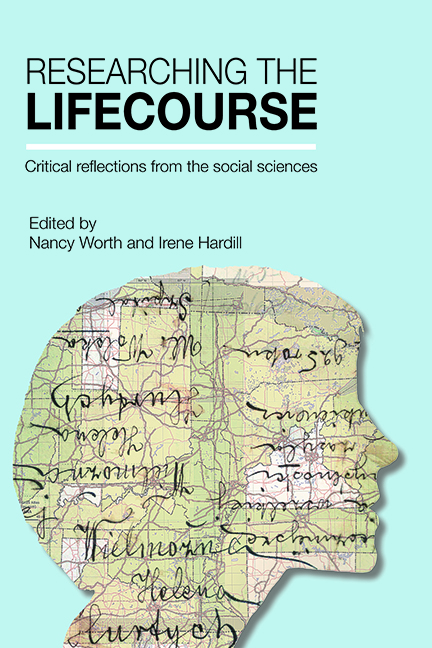five - A method for collecting lifecourse data: assessing the utility of the lifegrid
Published online by Cambridge University Press: 08 March 2022
Summary
Introduction
The lifecourse can be studied using a number of different research designs and methodological approaches – all presenting their own set of challenges and benefits. In recent years there has been increasing use of the lifegrid for both quantitative and qualitative studies. The application of the lifegrid is appealing to many researchers for a variety of reasons. It is especially useful for studies where a longitudinal focus is integral to the research objective(s), and such is the case with lifecourse research. Compared with traditional longitudinal studies, the administration of the lifegrid is a less costly alternative and is relatively easy to use with some training (Holland et al, 1999).
The lifegrid is explored in its capacity as a data collection tool. The aim of this chapter is threefold. Given that the critique of the lifegrid is informed in part by others’ experiences of using the lifegrid, but also in part by my own, the first aim of this chapter is to provide a very brief overview of the research design, sample and method which informed my experiences, providing some detail of the lifegrid itself and drawing on a case study to demonstrate the type of output it may generate. The second and primary aim of this chapter is to assess the utility of the lifegrid and to suggest strategies which could potentially be incorporated to overcome some of the challenges associated with its use. The third and final aim of this chapter is to highlight the differences between historical and narrative truths and explore how these play a role in the types of data obtained via the use of the lifegrid.
The utilisation of the lifegrid in the exploration of the living and working environments of oesophageal cancer patients
The lifegrid was used in a study which included a sample of 46 oesophageal cancer patients (see also Novogradec, 2012). These participants were recruited by means of purposive sampling from hospitals where ethics approval was obtained within the regions of London and Toronto, Ontario. A narrative research design was utilised whereby participants shared their life stories as it pertained to the key risk factors for oesophageal cancer documented in the literature. Participants’ narratives were provided around a predetermined set of questions and variables of interest such that participants discussed their experiences and exposures in relation to the same factors. In this respect, the narratives collected were fairly structured.
- Type
- Chapter
- Information
- Researching the LifecourseCritical Reflections from the Social Sciences, pp. 81 - 98Publisher: Bristol University PressPrint publication year: 2015



